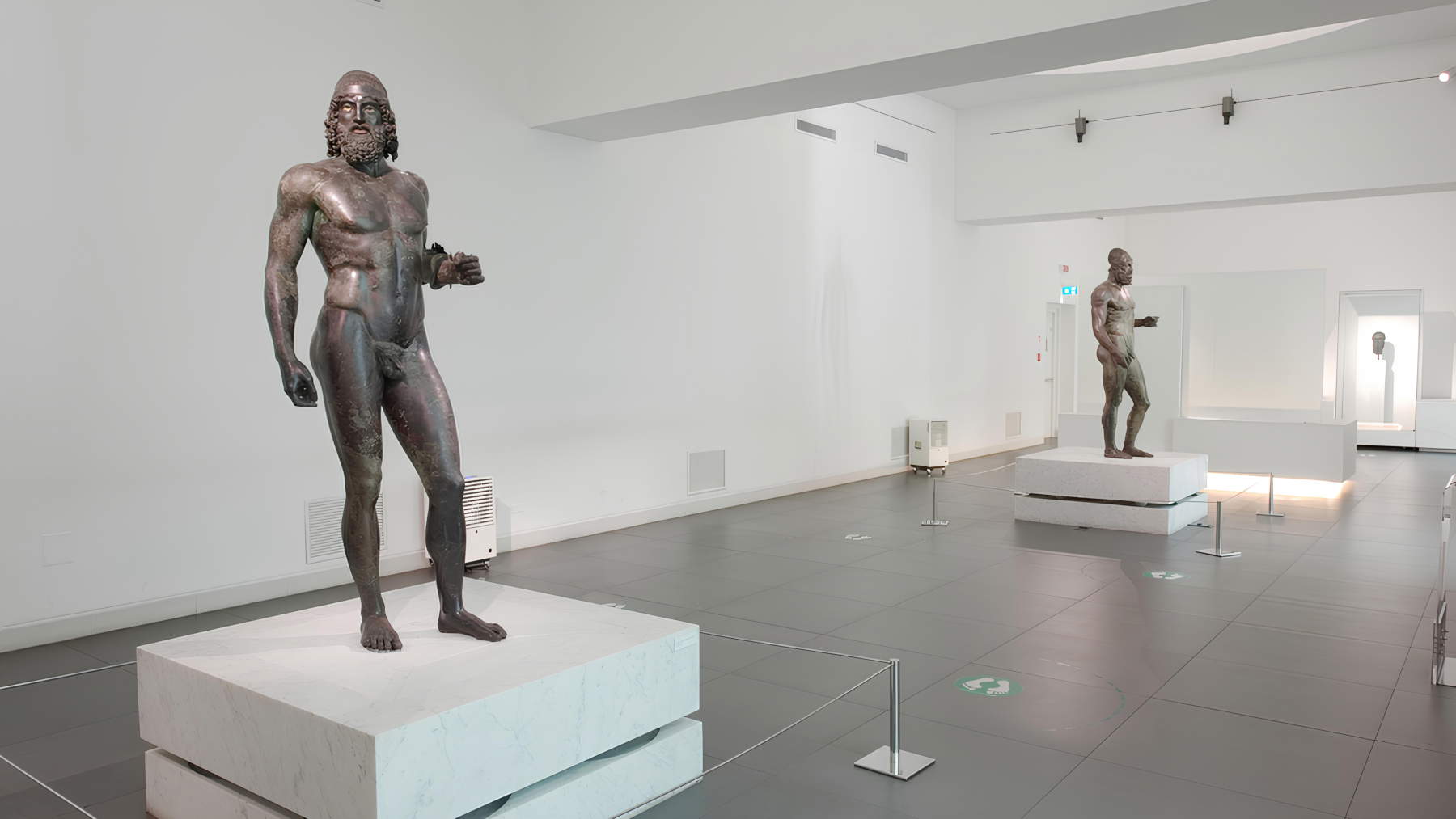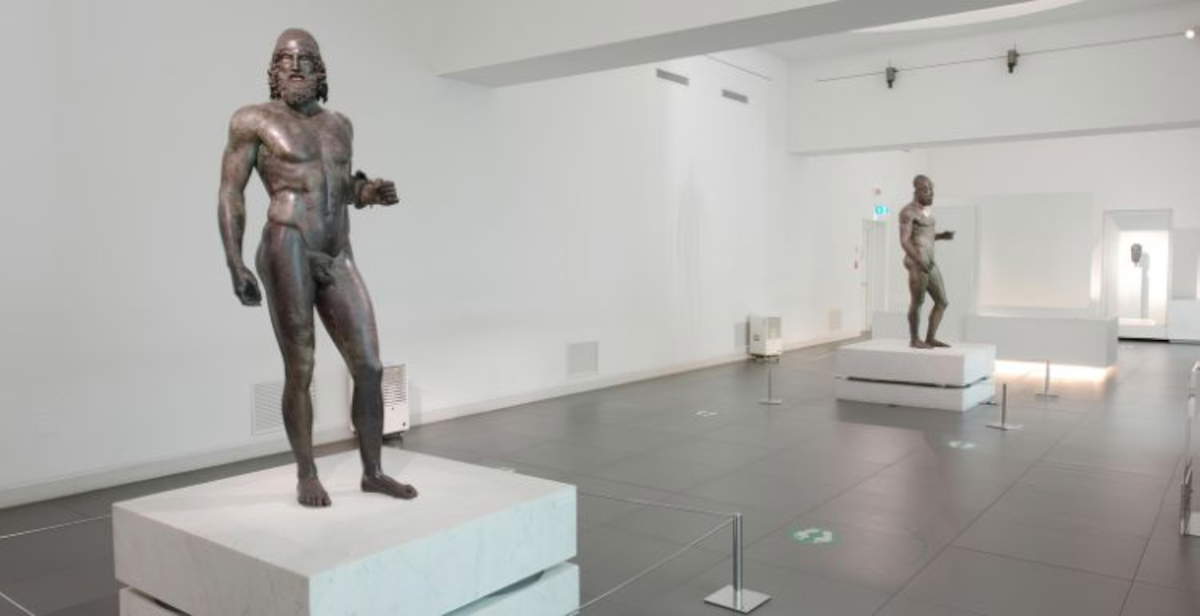A single ticket to visit the main museums and archaeological sites in Calabria. This is the focus of the projectCalabriaCulturaPass, the new integrated ticket promoted by the National Archaeological Museum of Reggio Calabria in collaboration with the Regional Directorate National Museums Calabria and under the supervision of the General Directorate Museums of the Ministry of Culture.
The initiative, proposed by the Reggio Museum directed by Fabrizio Sudano, was created with the intention of creating a more accessible, coordinated and interconnected territorial cultural system. The new ticket, valid for six months from the first use, offers visitors the opportunity to freely build their own cultural itinerary among nine different routes distributed throughout the Calabrian territory, while enjoying a 20 percent discount on regular fares. It is a named ticket, which can be purchased online through the Italian Museums app, on the portals www.museiitaliani.it and www.coopculture.it, as well as on-site at the National Archaeological Museum ticket office in Reggio Calabria.
“This initiative represents a further step in the enhancement and enjoyment of Calabria’s extraordinary cultural heritage,” says Massimo Osanna, director general of Museums. “A region that, with its historical and archaeological treasures, deserves to be increasingly known and appreciated nationally and internationally. As Directorate General for Museums, we are committed to promoting an integrated museum system that allows citizens and visitors to explore cultural heritage in an easy and participatory way. The proposal developed by the National Archaeological Museum of Reggio Calabria, in collaboration with the Calabria Regional Museums Directorate, fully meets this challenge.”
Among the planned itineraries, two have already been detailed. The first revolves around the Strait area, with stages that allow one to ideally cross the Lower Tyrrhenian and Lower Ionian seas, having as its central point precisely the Museum of Reggio Calabria. The Strait area, a strategic crossroads in antiquity for military, commercial and cultural reasons, is rediscovered through three main sites: the National Archaeological Museum in Reggio Calabria, the Museum and Archaeological Park in Bova Marina and the Metauros Archaeological Museum in Gioia Tauro.
The tour begins with a visit to the Museum of Reggio, which holds the most important collection of Magna Graecia artifacts in southern Italy and houses the famous Riace Bronzes, the bronze sculptures found in 1972 in the waters of Riace Marina. The permanent collection also includes the Dioscuri of Locri, artifacts from the Porticello site, objects from Calabrian prehistory, and evidence of underwater archaeology.
About 47.5 kilometers away is the Bova Marina Archaeological Museum and Park, which documents the phases of late antiquity through excavations conducted in the area. The site offers the opportunity to explore an archaeological area nestled in the Ionian landscape of Calabria, enriched by artifacts that testify to the cultural evolution of the region between the late Roman period and the early Middle Ages. Rounding out the itinerary is the Metauros Archaeological Museum, located in Gioia Tauro, 100 kilometers from Reggio. The museum is located in Palazzo Baldari and houses artifacts from the necropolis of the city of Metauros, one of the earliest Greek foundations in southern Italy, dating from the 8th and 7th centuries BC. The site offers a detailed picture of funerary customs and daily life in archaic Calabria.

For this first itinerary, the ordinary cost of individual tickets would be 20 euros (full price) or 6 euros (reduced price for visitors between 18 and 25 years old), while with the integrated ticket it drops to 16 and 4.50 euros, respectively.
On the other hand, the second itinerary, called Reggino Tirrenico, includes the sites of Gioia Tauro and Rosarno, in a journey that allows visitors to delve into the history of the Magna Graecia colonies of Metauros and Medma. Again, the starting point is the Museum of Reggio, which serves as the nerve center of the regional museum network. About 54 kilometers away is the aforementioned Metauros Museum, while only 11.2 kilometers away is the Medma Museum and Archaeological Park in Rosarno. The site of Medma, an ancient subcolony of Locri, offers visitors a modern museum layout and archaeological park that allows direct exploration of the city’s urban remains. This is an opportunity to understand the organization of the territory in Greek times, as well as the distribution of settlements along the Tyrrhenian coast.
The ordinary cumulative cost for this second itinerary is 15 euros (full) and 4 euros (reduced), while with the integrated ticket it drops to 12 euros for full and 3 for reduced. Admission to the Medma site is currently free.
“The calabriaculturapass integrated ticket,” says Fabrizio Sudano, director of the National Archaeological Museum of Reggio Calabria and deputy director of the Regional Directorate of National Museums Calabria, “represents a strategic tool for the cultural promotion of the entire Calabrian territorial sector and the cornerstone for the construction of an increasingly solid museum network, capable of offering the public articulated and coherent experiences. The National Archaeological Museum of Reggio Calabria thus strengthens its role as a driving force behind culture in Calabria, consolidating its ties with the territory and local communities, with a view to openness, participation and expanded accessibility. The proposed itineraries, designed for the large flow of summer tourists but also for scholars and enthusiasts, are conceived as an oil stain that from the great attractor which is the Museum of Reggio Calabria spreads to lesser-known but equally important museums and sites, and each one unique in its kind.”
The introduction of the CalabriaCulturaPass thus aims to stimulate medium- to long-term cultural tourism, encouraging a wider and more informed enjoyment of Calabria’s archaeological heritage. Visitors, thanks to the six-month duration of the access pass, will be able to plan their own journey through time and space, following the ancient routes of Magna Graecia, passing through the remains of Roman and medieval cities, and arriving at the contemporary city museums.
The initiative also aims to promote cooperation between different regional cultural institutions, encouraging the construction of a network that not only physically connects cultural sites, but also integrates them within a coherent and accessible narrative. The project is part of a ministerial program aimed at enhancing regional museum hubs through digital tools and cultural marketing strategies, in line with the accessibility and sustainability policies promoted by the Ministry of Culture.
The CalabriaCulturaPass thus represents a replicable model for other regions, in which widespread heritage is made more usable through simplified access and economic incentives. The integration between museums, archaeological parks and digital tools represents a step forward toward a more coherent and conscious fruition of heritage, oriented toward a widespread valorization of the Calabrian territory and its contribution to Mediterranean history.
 |
| Calabria, single ticket is born to visit nine museums and archaeological sites |
Warning: the translation into English of the original Italian article was created using automatic tools. We undertake to review all articles, but we do not guarantee the total absence of inaccuracies in the translation due to the program. You can find the original by clicking on the ITA button. If you find any mistake,please contact us.